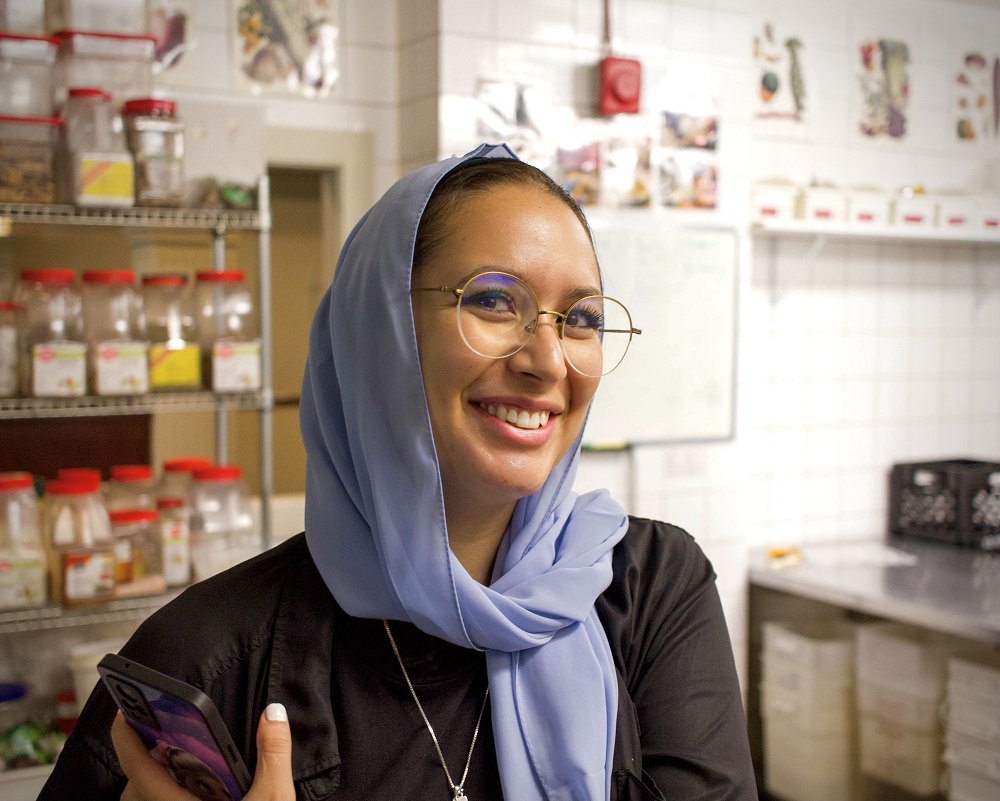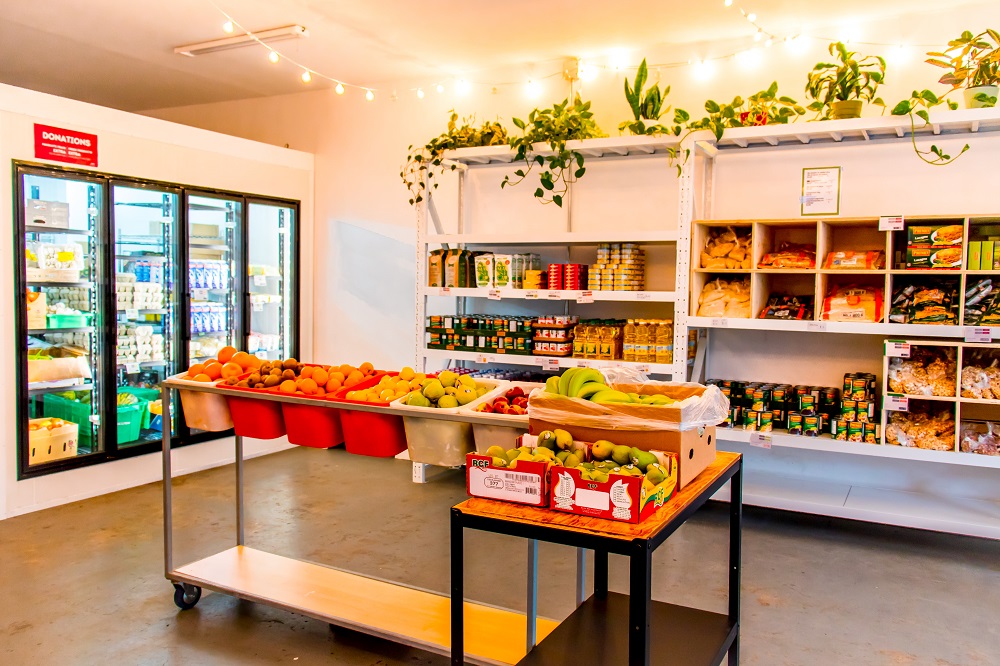The Depot Community Food Centre is a Montreal-based not-for-profit organization which aims to alleviate food poverty through skillsharing, providing food distribution services and actively mobilizing to change policy relating to food insecurity. This mix of “advocacy with direct social intervention” is something that is unique to the Depot Community Food Centre and we spoke with Houda Kerkadi, Community Engagement Coordinator, to learn more.

Describe your charity/non-profit/volunteer work in a few sentences.
The Depot Community Food Centre, formerly the NDG Food Depot, is a community-based non-profit organization founded in 1986 that works collaboratively with other community partners to address issues of food security in NDG and the surrounding areas. At The Depot, we believe that food is a basic human right and that food insecurity is directly linked to poverty and social inequality. We recognize the diversity in our participants’ experiences and the complexity in their individual needs. We harness the power of nutritious and delicious food through our programs to bring people of all ages and backgrounds together to grow, cook, share, and mobilize in community.
What problem does it aim to solve?
We aim to respond to the immediate needs of the community through our food distribution services while growing knowledge, skills, supportive networks and healthy habits through our diversity of food-based programs, and mobilizing to change the conditions that create barriers to food access through advocating for equitable public policy.
When did you start/join it?
I joined The Depot in May 2021.
What made you want to get involved?
What drew me to The Depot was the fact that their food security work is rooted in anti-poverty. Prior to joining The Depot team I worked with migrant women to improve their quality of life while addressing the distinct and compounded challenges experienced by racialized newcomers. Prior to that, I was doing outreach and working to raise awareness for people who wanted to be more involved in humanitarian causes.
While doing this work, I quickly realized that if people’s basic needs of access to food are not met, it becomes nearly impossible to address anything else. Improving one’s quality of life can only begin when their immediate, basic needs are met. A great example is the Black Panthers’ Free Breakfast for School Children program. The program supported the children to eat a nourishing meal in a safe, supportive environment before school, optimizing their ability to learn.
I got involved with The Depot because I was excited for a position that infused advocacy with direct social intervention.
What was the situation like when you started?
I joined The Depot in what I would say was still the midst of COVID. There was a need in our community, but it was in no way close to what we are seeing now. When I started, we were dealing with about 1 or 2 crisis situations per month, cases of deep complex poverty. We had more material support, in the form of emergency government funding and community members had CERB. What we quickly saw was that, more money in people’s pockets equals less need for food support services. We were finally seeing some form of improvement. When I started, there was also more capacity within the community. If we referred a participant to a partner organization, we were able to work in tandem to support them.
Currently, whatever we do is not enough, the band-aid is no longer holding anything together, we’re maxed out in every sense of the word, there is unfortunately no other way to put it.
How has it changed since?
Today, we’re facing up to 3 or 4 crisis situations a day, our demand for food has doubled and continues to grow, community organizations are stretched way beyond their limits and are having to turn people away. All while emergency government funding and CERB have ended.
What we’re seeing is that the band-aid put in place to help food-insecure folks is failing. For so long organizations like ours have been used to support the deep immediate needs of our community, and now, we’re witnessing our limits. With the lack of resources, capacity and the worsening economic climate, our food support services are no longer meeting the need. We’re trying to hold it together as it breaks down.

What more needs to be done?
There are two ways to look at this, monetarily and structurally. We know that infusing The Depot as well as other community organizations with government funding is a need. We want to continue to help people in our community to access healthy, affordable food; gather safely with others; share a good meal; and find resources to help them move forward. We need to be able to continue offering our services, now more than ever.
Additionally, if we do not address the root causes of the issues we’re dealing with today, on a structural level down the line, we will be in the same position as we’re in right now, and we know it will not be enough. During the pandemic, we saw how CERB payments drove demand down for food support. If the government reintroduced this income floor, it still wouldn’t be enough due to the gravity of the housing crisis. We know that when money comes in, the first place it’s spent is on housing. People’s priority will always be to keep themselves housed. Food becomes the first big basic need sacrificed, and paying phone bills and anything else becomes a luxury.
There are two ways to move forward, the first being to support community-led organizations like LogisAction who are working with governments to solve the housing crisis. Second, we need to call on the federal government to create a Canada Working-Age Supplement (CWAS). This refundable tax benefit would establish an income floor for all working-age (18-64) single adults and provide up to 39 per cent more income for people living in deep poverty. Poverty rates among this demographic are nearly three times higher than the national average. More than 1 in 5 people in this demographic live below the poverty line and 24 percent of them experience food insecurity. Yet they receive the lowest amount of government support.
All in all, in the short term we need more money in order to continue to meet the immediate needs of our community and mobilize organizations to directly address poverty on a structural level.
How can our readers help?
To the general public, we need to advocate, on a federal level, to implement a Canada Working-Age Supplement (CWAS) and establish an income floor for all working-age (18-64) single adults.
Politicians and people with power need to rebuild trust with the communities that they’re serving by showing a proven track record of listening to constituents and implementing their demands.
Nonprofits need to serve as a mobilizing force to organize community-led social justice initiatives.
To anybody with the means to do so, please help us continue to offer our necessary programs by donating, volunteering or participating with us.
Where can we follow you?
You can follow The Depot on Instagram, Facebook, and LinkedIn. To learn more about us, feel free to visit our website. To keep up with us, subscribe to our newsletter!
PAY IT FORWARD: What is an awesome local community organization you love?
Head & Hands!



